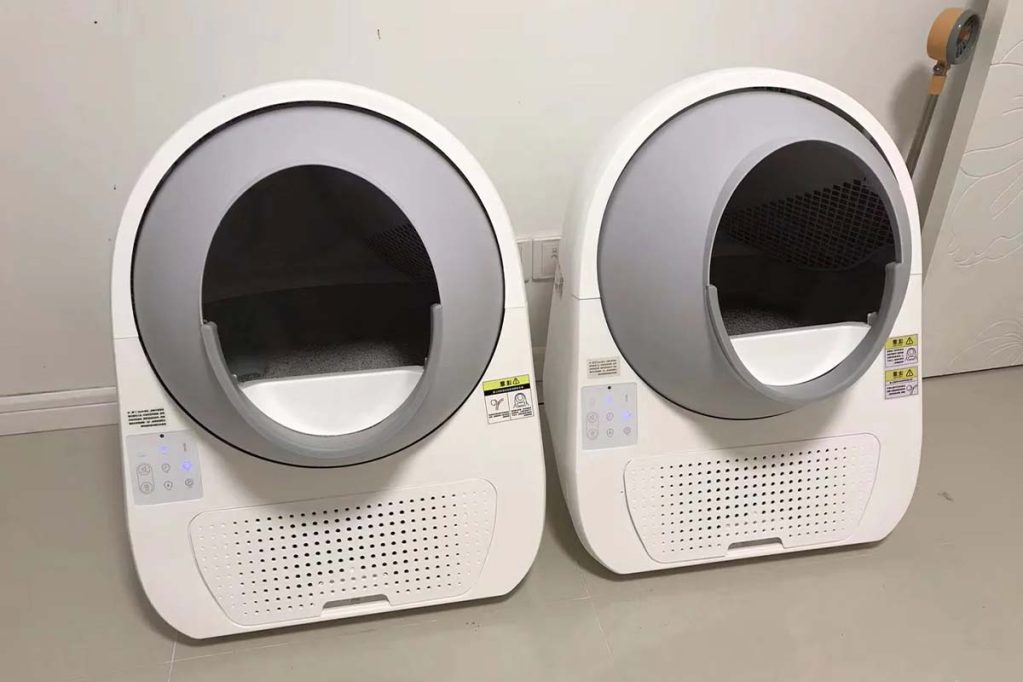If you're tired of the daily grind of scooping litter, an electric litter box might be a great solution. I've used several products on the market and researched a lot of user feedback, so here are its pros and cons.
Advantages of Electric Litter Boxes
The most obvious advantage is saving time and effort. The machine automatically cleans up your cat's waste, so you no longer need to scoop litter by hand every day. This is especially practical for busy people or those who travel frequently, as you don't have to worry about your cat's litter box even for short trips.
It can also help you monitor your cat's health. Many smart litter boxes can record the time, duration, and weight changes of your cat's urination through an app. If your cat has abnormal urination (such as frequent urination with small amounts of urine), this could be an early sign of urinary tract diseases, allowing you to detect it early.
It also performs well in terms of odor control. Most electric litter boxes have dedicated odor control systems, such as activated charcoal filtration, UV sterilization, or ozone deodorization, which control odors better than traditional litter boxes.
Additionally, they are more wasteful of litter. The automatic sifting program only removes clumps of urine and feces, allowing clean litter to be reused, unlike manual litter scooping which can waste a significant amount of good litter.
Disadvantages of Electric Litter Boxes
Price is the first consideration. Good electric litter boxes are not cheap, and you may need to purchase dedicated litter bags or odor-eliminating boxes later.
They are not suitable for some cats. Kittens (weighing less than 1.5-2 kg) are not suitable because the safety sensors may not accurately detect them. Cats with soft stools are also unsuitable, as loose stools tend to stick to the filter, making cleaning more difficult.
While safety has improved significantly, potential risks remain. Early products had reports of cats getting caught in the filter, but mainstream brands now have multiple safety features (such as weight sensors and infrared detection) that stop working when a cat approaches.
Cleaning and maintenance aren't exactly simple either. While you don't need to scoop litter every day, regular cleaning of the machine's internal components is still necessary. Some models have complex structures, making disassembly and cleaning potentially more difficult than with a regular litter box.
They are usually quite large and take up a lot of space, so small apartments may need to consider whether they have enough room to place them.
The machines will produce some noise when operating. Although most products are not very loud, it may be disturbing for particularly sensitive cats or family members.
Key Considerations for Purchase
If you decide to buy one, focus on these points:
Safety is paramount: Choose products with multiple safety features such as weight sensors and infrared detectors.
Choose according to your cat's size: Large cats need more spacious internal space, while kittens need to consider whether the entrance height is suitable.
Consider your family's circumstances: Multi-cat households need to choose models with larger waste collection tanks.
Final Recommendation
Electric litter boxes are suitable for busy owners, frequent travelers, or those who simply want to avoid the daily task of scooping litter. If your cat is an adult, in stable health, and you have a sufficient budget, investing in a high-quality electric litter box can significantly improve your cat ownership experience.
However, if you have a kitten, your cat is sick or has soft stools, or you have a limited budget, you might want to wait. After all, even the most intelligent device is best suited to your and your cat's actual needs.


